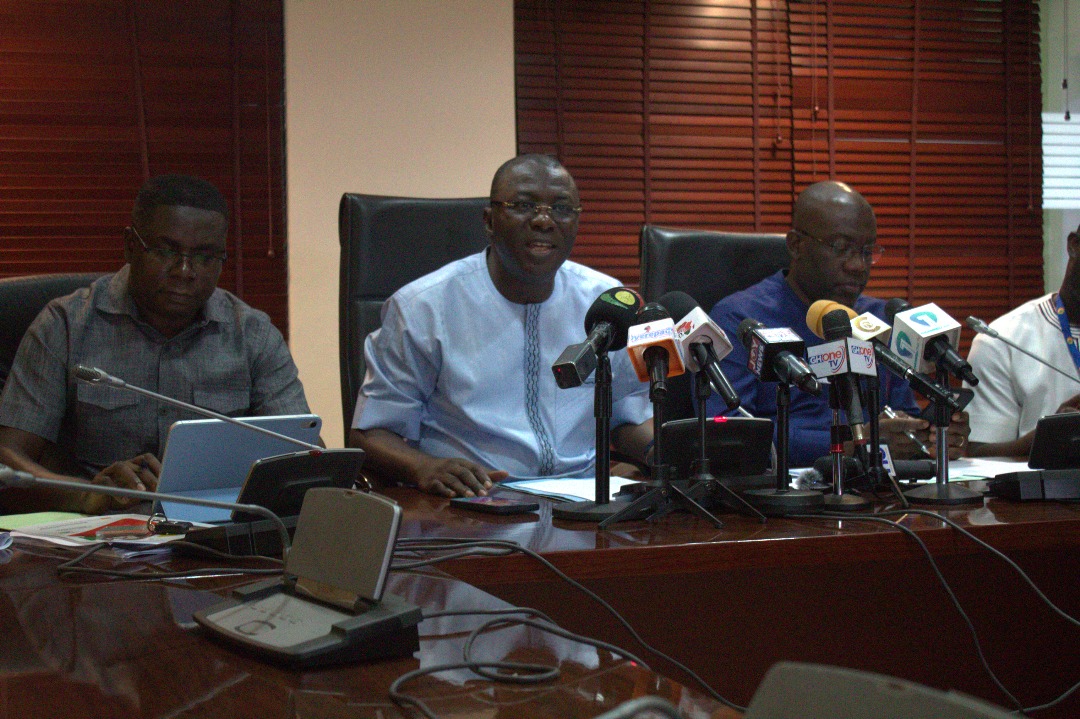The NPP Minority in Parliament has accused the Bank of Ghana of intervening in the FX Market through auction and other means-“the shortage of Dollars in the Banks has been so pronounced that importers have gone public to express their frustration about the situation”.
Addressing the Parliamentary press Corps in Accra on the Mid-Year Budget Review presented to Parliament by the Minister for Finance, Dr. Ato Forson, the former Finance Minister, Mohammed Amin Adam said, “tt is evident that the Bank of Ghana has been intervening significantly in the FX market through auctions, bilateral sales, and other tools, despite the Bank of Ghana Governor denying such interventions were happening”, adding that, it took the IMF to disclose that in Q1-2025 alone, the Bank injected over US$1.4 billion into the market, “yet these interventions remain ad hoc, opaque, and devoid of a rule-based framework. And this is why the IMF has cautioned the Bank about the sustainability of such a policy”.
As the IMF rightly observed: “Looking ahead, deepening the interbank FX market by reducing BoG’s footprint and allowing for greater exchange rate flexibility—including through the adoption of a formal internal FX intervention policy framework—should be a priority.”
The Minority said, they are interested in measures that sustainably address the FX situation, including reducing our dependence on cheap imported products, which drains significant FX from the country every year, by deliberately improving domestic production through initiatives such as 1D1F.
And that, the next NPP government will address FX Flows (including black Market activities), Import/Export Traders’ activities, FX Transaction execution, and FX Innovation/Improvements to permanently address currency issues.
Delving into the budget review, Mr. Adam mentioned that the outturns show that the Finance Minister has had to abandon his original fiscal program and adopt the recommendations that were made by his NPP party when the original budget was presented stressing the point that “the expansionary plan presented has now had to be cut by some GHs19 billion in line with the Minority’s call for cuts. It is because of this that the government can achieve a 1.1% primary balance”.
According to him, “contrary to the government’s initial strategy to be able to increase revenue without introducing new taxes, the outturns at mid-year show that the government’s revenue strategy failed. After sweeping GH11 billion as balances brought forward and introducing 8 new taxes, the government still has a revenue shortfall of 3billion cedis”.
He said the consequences of the failed fiscal strategy are that the new taxes will soon translate into inflation, as is being warned by BOG, while the 19 billion expenditure cuts without a compensating strategy are now affecting the Government’s ability to deliver on public goods and services.
The minority, however, urged the government to adopt certain measures liking focusing on the strict enforcement of currency rules instead of artificially dumping dollars on the market to suppress the cedi.
This, he said it is the reason why the supply of forex is limited, leading to complaints from importers that they cannot get dollars to service their forex needs.
Two, the Government should focus on mainstreaming PPPs as the expenditure cuts are affecting government service delivery and withdraw the burdensome taxes to avoid inflationary pressures shortly






































